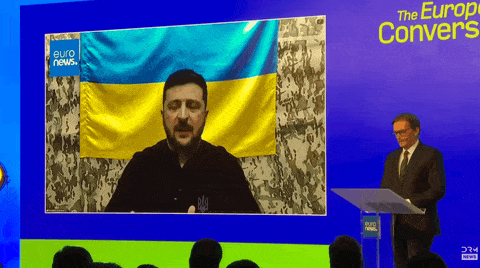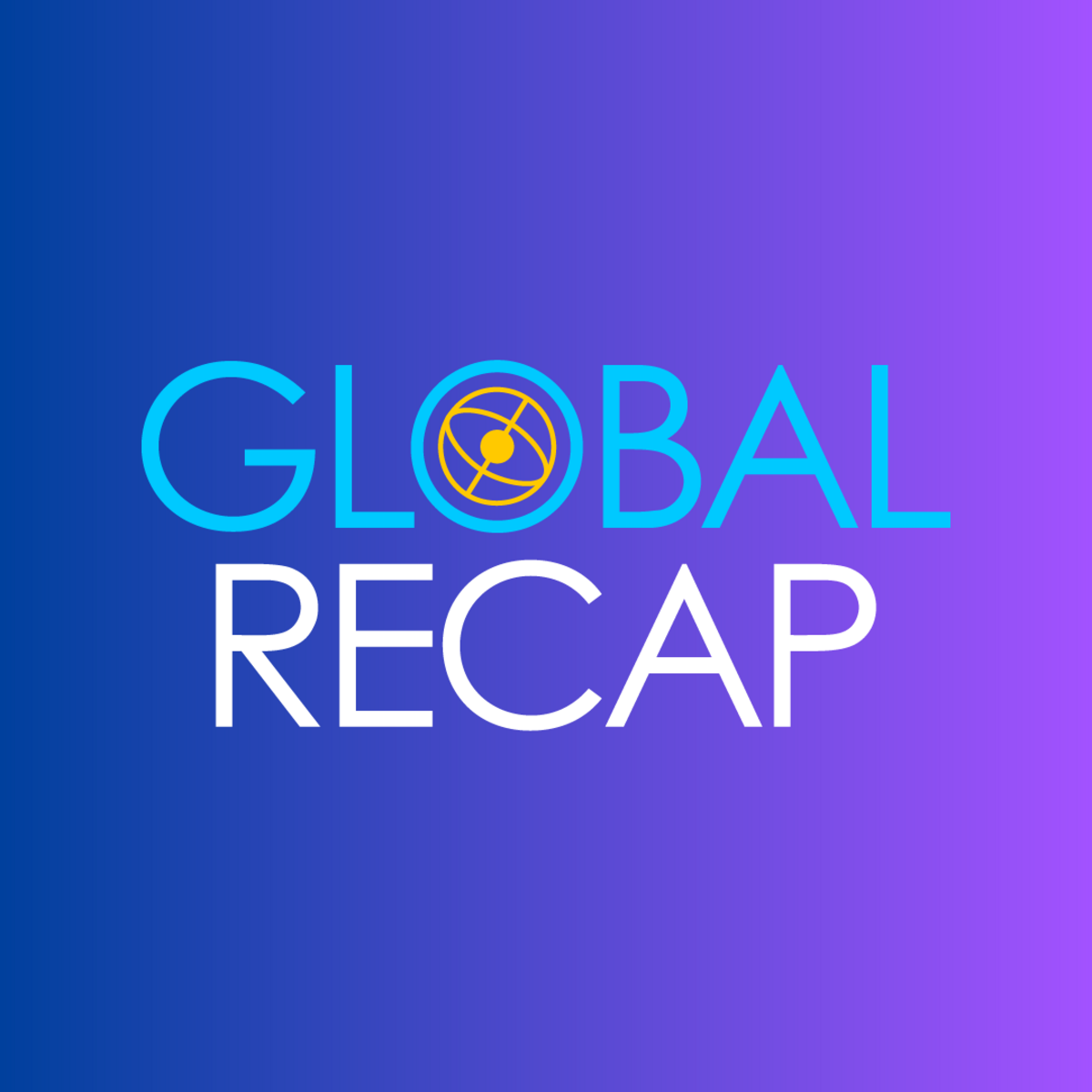
Hi Global Recap readers,
I know the title sounds a bit dramatic. I know because I thought the same thing when I first saw a headline like it.
But it really does seem like EU leaders are either:
worried about provoking Trump (afraid he’ll hit back with tariffs),
just plain tired of dealing with him,
or maybe a mix of both..?
You probably know the move from school or work: when you don’t want to get called out, sometimes the smartest play is just to stay out of sight. 👇
🇧🇪 BELGIUM
Drones Halt
Airports (Again)

Belgium shut Brussels and Liege airports after evening drone sightings that forced diversions and grounded departures. The closures hit Tuesday night local time and briefly eased before authorities reimposed them.
Timing: Air traffic control reported a drone near Brussels Airport shortly before 8 p.m. local time.
Impact: Brussels Airlines said 15 outbound flights could not depart, and eight inbound flights diverted to other airports. Liege Airport, primarily a cargo hub, also closed after sightings.
Officials: Defense Minister Theo Francken told public broadcaster RTBF the activity looked like work by professionals "intent on destabilizing the country."
Pattern: Belgium saw drones over a military base the prior weekend, while recent months brought similar closures in Copenhagen and Oslo, plus suspected Russian incursions over Polish and Romanian airspace.

🇺🇦 UKRAINE
Zelenskyy Rejects
EU Downgrade
Ukrainian President Zelenskyy blasted talk of a second-tier membership path, demanding equal footing in the EU once negotiations begin. Speaking via video from near Pokrovsk, he called half-membership “impossible” and warned delay would erode morale and leverage.
Backdrop: The idea of a “multi-speed Europe,” with inner and outer circles, has been floated by EU officials for decades now, as a way to manage rapid enlargement without giving newcomers full voting power.
Rebuttal: Zelenskyy said Ukraine “cannot be semi- or demi-member,” insisting all members must sit “at the same table.”
Reforms: He cited the European Commission’s Nov. 4 report praising Ukraine’s “remarkable commitment” but pushed back on its corruption warnings, claiming Kyiv has “the widest anti-corruption infrastructure in Europe.”
Hungary: He dismissed striking any deal with Hungarian PM Viktor Orban to lift Budapest’s veto, arguing that blocking Ukraine aids Putin.
US: He further reinforced his position by noting that US President Trump had privately expressed support for Ukraine’s EU membership bid, although no specific timeline was mentioned.
📌 Context: EU leaders have debated a tiered structure to speed expansion while protecting internal consensus. Kyiv fears such plans would trap it in a lower-status circle even after meeting all requirements.

🇪🇺 EUROPE
Don’t Want To
Annoy Trump

Speaking of the EU, top EU figures including German Chancellor Friedrich Merz and Commission chief Ursula von der Leyen will skip next week's EU CELAC summit in Santa Marta, Colombia, so as to not provoke US President Donald Trump (reportedly).
🗓 The meeting is set for Nov. 9–10, but attendance is thinning fast.
Attendance: Only five European leaders and three Latin American and Caribbean leaders have confirmed, according to people involved in the planning. That is far below typical summit turnout and signals a coordination problem as the date nears.
Rationale: Washington's sharper posture toward the region, including military threats against Venezuela and new sanctions on Colombian President Gustavo Petro, is reportedly spooking European capitals that do not want to cross the White House.
Germany: Merz will stay home due to "the low participation of other heads of state and government," his spokesperson Stefan Kornelius said in an email, showing the snowball effect of a thin guest list.
Commission: The European Commission did not immediately comment, which leaves member states to calibrate their own political risk calculations in the short window before Nov. 9.
Agenda: The summit was designed to strengthen trade ties and coordinate action against organized crime. Together the EU and CELAC cover about 21% of global GDP.
📌 Context: The region is fractious this month. On Nov. 4 the Dominican Republic postponed the Summit of the Americas until 2026 amid tensions over US strikes and Venezuela, while the EU still hopes to close a long delayed Mercosur trade deal by year end.

🇺🇸 UNITED STATES
US Seeks UN
Gaza Mandate

(From the left to right) Turkish President Erdogan, Egyptian President el-Sisi, US President Trump, Emir of Qatar al-Thani, and King Abdullah II of Jordan, at the Gaza International Peace Summit, in Sharm el-Sheikh, Egypt, Monday, Oct. 13.
The US is asking the UN Security Council for a two-year mandate to deploy an international stabilization force in Gaza, a plan centered on demilitarization and training local police, according to a draft resolution mandate. The force would aim to backstop a fragile ceasefire and run under an international "Board of Peace" through December 31, 2027.
Scope: The draft says the force would work with Israel and Egypt to demilitarize Gaza, including the permanent decommissioning of armed-group weapons, train and support Palestinian police, protect civilians, and secure humanitarian corridors.
Timeline: The mandate would last at least two years and expire on December 31, 2027, with an option to extend if members agree.
Politics: The text aligns with President Trump's 20-point plan but does not explicitly promise a path to Palestinian statehood, and it sidelines the Palestinian Authority until unspecified reforms.
Numbers: Passage requires 9 of 15 votes and no veto from the five permanent members.
Hesitation: Many governments fear direct clashes with Hamas. Arab states signal they will not send troops without a credible statehood horizon. Jordan's King Abdullah said he hopes this is "peacekeeping," not "peace enforcing."
Current Situation
UN-backed security missions can freeze violence and buy political time, but they struggle when core disputes stay unresolved.
Here are the sticking points:
Hamas disarmament
Legitimate leadership
Statehood and recognition
For Palestinian statehood to gain recognition, other sponsoring nations must be convinced that it won’t become a launchpad for terrorism. No country wants to sponsor a state that fuels the next war. That’s why dismantling Hamas is non-negotiable for many parties. With its success other 2 points can be fulfilled.
But here’s the dilemma:
One of the most common points of contention is: "Why should Gaza or Palestine need other nations’ approval to declare itself a sovereign state?"
It may not feel "fair," but that’s the reality of geopolitics.
No state exists in isolation. Modern nations operate within a global system shaped by military power, economy, and influence—where recognition, alliances, and legitimacy determine survival as much as independence itself.
Also, here’s the irony. The very idea of "recognition" implies seeking validation from others. It is, by definition, a collective judgment, not a solitary act.
📌 So it must choose: pursue international recognition within the frameworks agreed upon by others and accept interdependence, or insist on absolute self-determination and risk isolation. You can’t have both.


